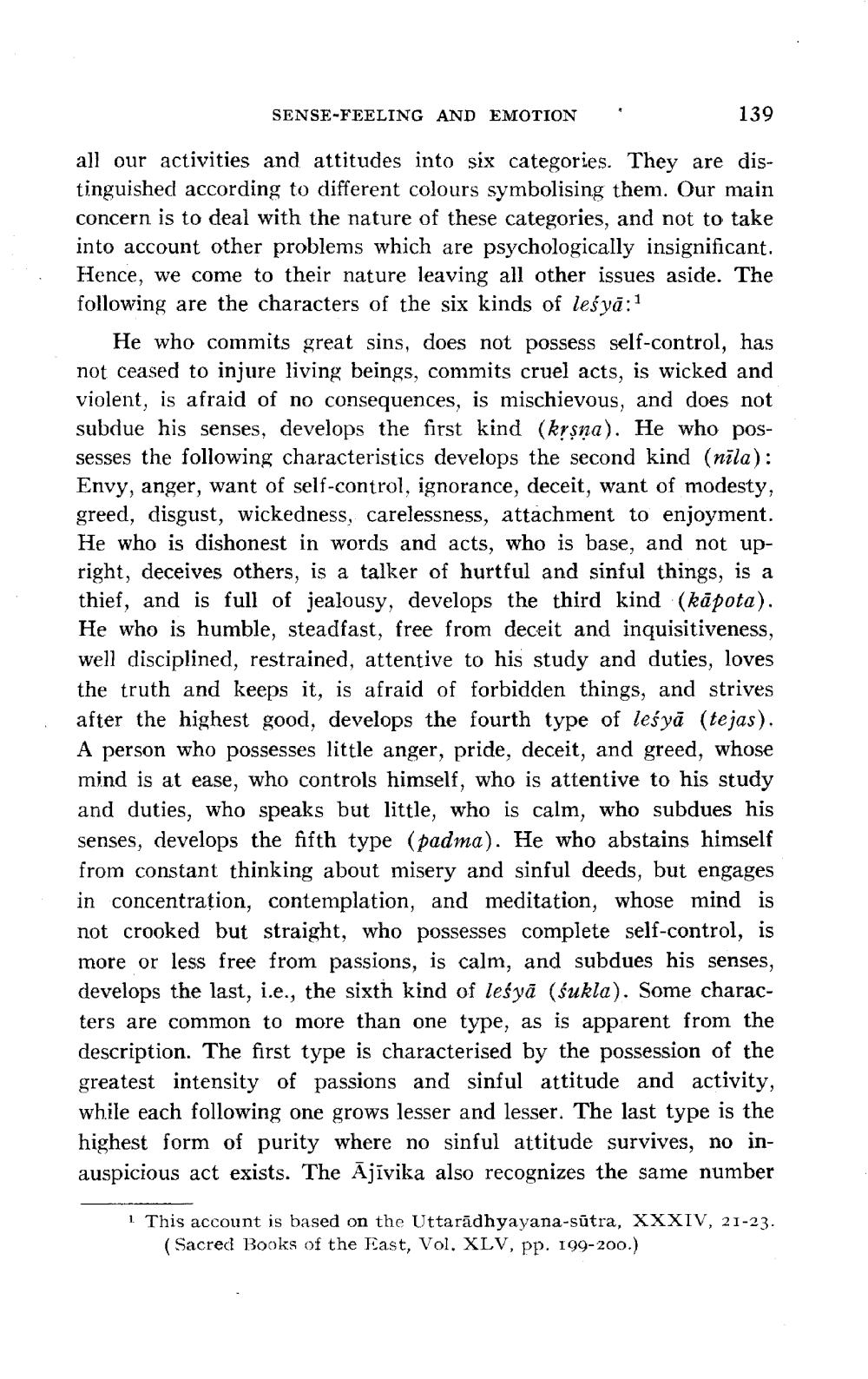________________
SENSE-FEELING AND EMOTION
139
all our activities and attitudes into six categories. They are distinguished according to different colours symbolising them. Our main concern is to deal with the nature of these categories, and not to take into account other problems which are psychologically insignificant. Hence, we come to their nature leaving all other issues aside. The following are the characters of the six kinds of leśyā:1
He who commits great sins, does not possess self-control, has not ceased to injure living beings, commits cruel acts, is wicked and violent, is afraid of no consequences, is mischievous, and does not subdue his senses, develops the first kind (krsna). He who possesses the following characteristics develops the second kind (nila): Envy, anger, want of self-control, ignorance, deceit, want of modesty, greed, disgust, wickedness, carelessness, attachment to enjoyment. He who is dishonest in words and acts, who is base, and not upright, deceives others, is a talker of hurtful and sinful things, is a thief, and is full of jealousy, develops the third kind (kāpota). He who is humble, steadfast, free from deceit and inquisitiveness, well disciplined, restrained, attentive to his study and duties, loves the truth and keeps it, is afraid of forbidden things, and strives after the highest good, develops the fourth type of leśyā (tejas). A person who possesses little anger, pride, deceit, and greed. whose mind is at ease, who controls himself, who is attentive to his study and duties, who speaks but little, who is calm, who subdues his senses, develops the fifth type (padma). He who abstains himself from constant thinking about misery and sinful deeds, but engages in concentration, contemplation, and meditation, whose mind is not crooked but straight, who possesses complete self-control, is more or less free from passions, is calm, and subdues his senses, develops the last, i.e., the sixth kind of leśyā (sukla). Some characters are common to more than one type, as is apparent from the description. The first type is characterised by the possession of the greatest intensity of passions and sinful attitude and activity, while each following one grows lesser and lesser. The last type is the highest form of purity where no sinful attitude survives, no inauspicious act exists. The Ajīvika also recognizes the same number
1 This account is based on the Uttarādhyayana-sūtra, XXXIV, 21-23.
(Sacred Books of the East, Vol. XLV, pp. 199-200.)




